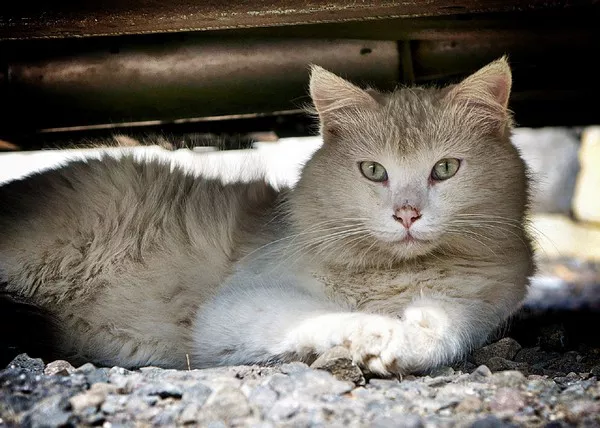Pregnancy in cats, or gestation, is a critical period that requires special attention to the health and nutrition of the mother. As cat owners, it’s natural to want the best for our feline companions, especially when they are expecting. One common question that arises during this time is whether pregnant cats can eat tuna. Tuna is often considered a treat by many cats, but its nutritional implications during pregnancy merit a thorough examination. This essay will explore the benefits and risks of feeding tuna to pregnant cats, the nutritional needs of pregnant cats, and alternative food options to ensure a healthy pregnancy.
Understanding Feline Nutrition
Cats are obligate carnivores, meaning their diet must primarily consist of meat. This dietary requirement is crucial for their overall health and well-being. A pregnant cat’s nutritional needs increase significantly to support the growth and development of her kittens. A balanced diet for a pregnant cat should include:
High-Quality Protein: Essential for fetal development and maintaining the mother’s health.
Fats: Provide energy and support the absorption of fat-soluble vitamins.
Vitamins and Minerals: Important for various bodily functions, including immune support and bone development.
Water: Essential for overall health and proper bodily functions.
The Appeal of Tuna
Tuna is a popular choice among cat treats due to its strong aroma and flavor, which many cats find irresistible. It is high in protein and can be a good source of omega-3 fatty acids, which are beneficial for both the mother and her kittens. However, the consumption of tuna, especially in large quantities, raises several concerns.
Nutritional Benefits of Tuna
High Protein Content: Tuna is rich in protein, which is essential for the growth and development of kittens.
Omega-3 Fatty Acids: These fatty acids can promote healthy skin and coat and may support cognitive development in kittens.
Palatability: Many cats enjoy the taste of tuna, making it a useful tool for enticing a pregnant cat to eat, especially if she is experiencing nausea or a decreased appetite.
Risks Associated with Tuna Consumption
Despite its benefits, there are significant risks associated with feeding tuna to pregnant cats:
Mercury Exposure: Tuna, especially larger species like albacore, can contain high levels of mercury. Excessive mercury can lead to neurological damage and developmental issues in kittens.
Nutritional Imbalance: Relying too heavily on tuna can lead to an unbalanced diet. Tuna lacks certain essential nutrients that pregnant cats need, such as taurine, calcium, and specific vitamins.
Addiction to Tuna: Cats can become finicky eaters if they are given too much tuna, potentially leading to a refusal to eat other, more nutritionally balanced foods.
Potential for Thiamine Deficiency: Raw fish, including tuna, contains an enzyme called thiaminase, which can break down thiamine (vitamin B1) in the body. A deficiency in thiamine can lead to serious neurological issues.
Recommendations for Feeding Pregnant Cats
Moderation is Key
If a cat owner wishes to offer tuna to their pregnant cat, moderation is crucial. A small amount of tuna as an occasional treat is generally safe, provided it is not the primary source of nutrition. It is advisable to choose tuna packed in water rather than oil, as the latter can add unnecessary calories and fat.
Balanced Diet
Pregnant cats should primarily be fed a high-quality commercial cat food specifically formulated for pregnant or nursing cats. These foods are designed to meet the increased nutritional needs during pregnancy and lactation. They typically contain:
- Increased protein levels
- Essential fatty acids
- Added vitamins and minerals
Consultation with a Veterinarian
Before making any dietary changes, it’s essential for cat owners to consult with a veterinarian. A veterinarian can provide personalized advice based on the cat’s health, dietary needs, and pregnancy status. They can also recommend the best commercial cat food options and discuss safe treat alternatives.
Alternative Treats for Pregnant Cats
If cat owners are concerned about the risks associated with tuna, there are many alternative treats that can be offered to pregnant cats:
Cooked Chicken or Turkey: Lean, cooked poultry is a safe and nutritious treat that many cats enjoy.
Canned Pumpkin: Plain, canned pumpkin is high in fiber and can be beneficial for digestive health.
Commercial Cat Treats: There are many cat treats available that are specifically formulated to be safe for pregnant and nursing cats.
Cooked Eggs: Scrambled or boiled eggs are a great source of protein and can be offered in moderation.
Conclusion
The question of whether pregnant cats can eat tuna is not a straightforward one. While tuna can provide certain nutritional benefits, the potential risks associated with its consumption, particularly regarding mercury exposure and nutritional imbalance, cannot be overlooked. A balanced diet tailored to the needs of pregnant cats is essential for the health of both the mother and her kittens.
In summary, while an occasional small amount of tuna may be safe for pregnant cats, it should not be a staple of their diet. Instead, cat owners should focus on providing a high-quality, balanced diet that meets the increased nutritional demands of pregnancy. Always consult with a veterinarian to ensure the best dietary choices for pregnant cats, and consider safe alternatives to tuna that can offer both nutrition and enjoyment. By prioritizing their health and well-being, cat owners can help ensure a successful pregnancy and healthy kittens.
Related topic:



























